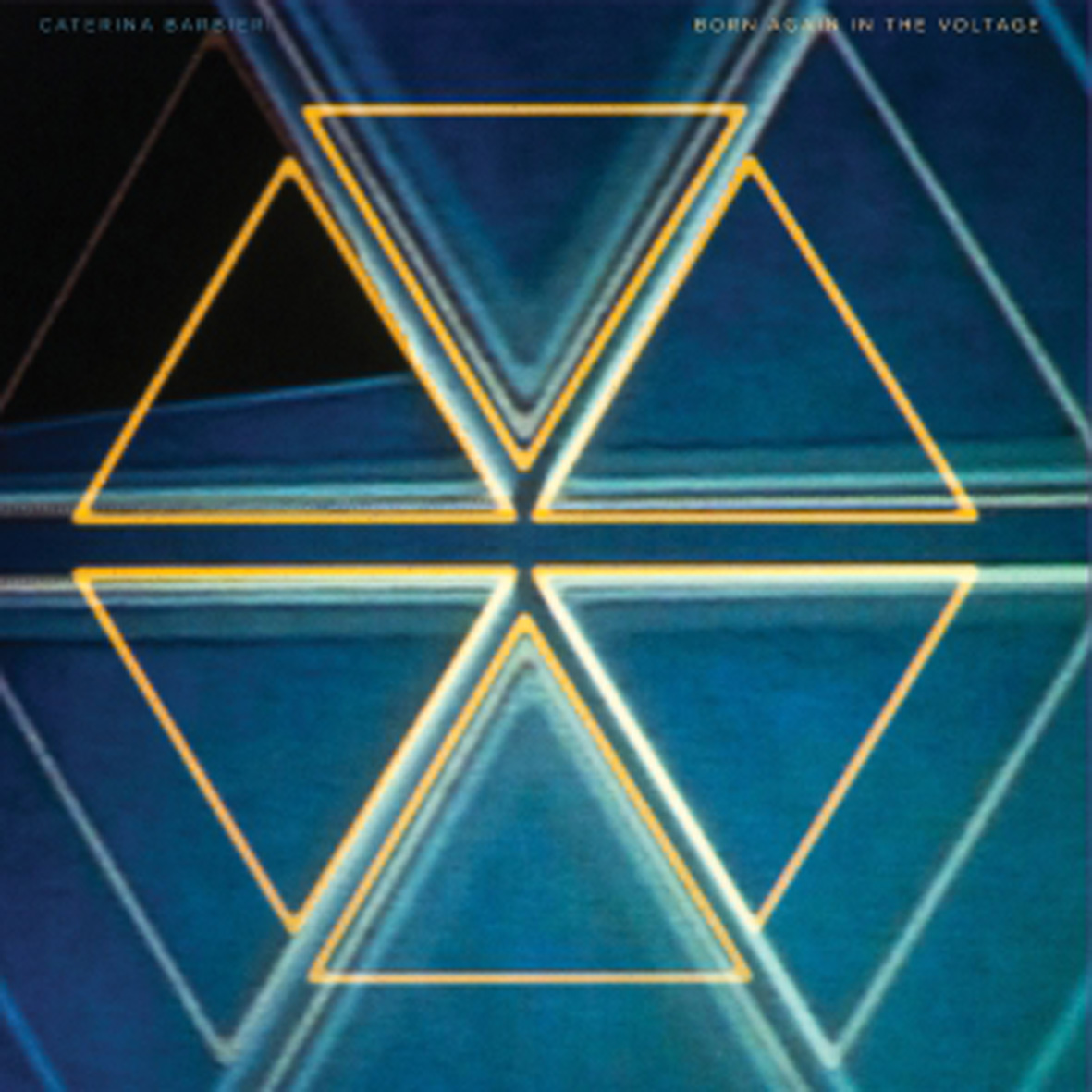 Last year's Patterns of Consciousness was a massive, ambitious, and occasionally dazzling psychotropic opus that sought to reshape consciousness through pattern manipulation, instantly establishing Caterina Barbieri as one of the most compelling contemporary synthesizer composers. Naturally, it will be a damn tough act to follow, but Born Again in the Voltage is not its highly anticipated successor, as its four pieces were recorded back in 2014 and 2015. On this more drone-based affair composed for the Buchla 200, Barbieri is joined by cellist Antonello Mostacci for a more modest and understated batch of songs. As such, Voltage is not quite as striking or distinctive as Barbieri's debut, but it is still quite good and "How to Decode an Illusion" is an absolutely gorgeous work.
Last year's Patterns of Consciousness was a massive, ambitious, and occasionally dazzling psychotropic opus that sought to reshape consciousness through pattern manipulation, instantly establishing Caterina Barbieri as one of the most compelling contemporary synthesizer composers. Naturally, it will be a damn tough act to follow, but Born Again in the Voltage is not its highly anticipated successor, as its four pieces were recorded back in 2014 and 2015. On this more drone-based affair composed for the Buchla 200, Barbieri is joined by cellist Antonello Mostacci for a more modest and understated batch of songs. As such, Voltage is not quite as striking or distinctive as Barbieri's debut, but it is still quite good and "How to Decode an Illusion" is an absolutely gorgeous work.
The album opens with its most slow-building and minimal piece, "Human Developers," which gradually takes shape around a core motif of distorted synth pulses with long decays.Soon after, Mostacci's cello takes over the foreground and a wonderfully moaning, shivering, and whining swirl of strings coheres, yet Barbieri's Buchla eventually makes a decidedly seismic resurgence.That is probably the most compelling part of the piece, as she whips up a shuddering earthquake of deep throbs that rumble up from the depths.That climax turns out to only be the piece's halfway point though.The second half emerges from that crescendo as a twinkling, cosmic fantasia of rapidly rippling arpeggios, buzzing chords, and vibrantly chirping electronics.It kind of feels like I am in an electronic aviary that is simultaneously hallucinatory and a bit too busy and cacophonous to be entirely comfortable.I am not sure if that is an entirely good thing, but it is certainly a unique headspace to inhabit for a while.The following "Rendering Intuitions" is considerably calmer, as it is built from a slowly churning bed of Mostacci's moaning cello drones.Gradually, a glacial and elegiac chord progression coheres and the piece achieves a kind of lurching, melancholy beauty.It is hard to tell what (if anything) Barbieri is doing performance-wise, as synthesizers are conspicuously absent, but her hand definitely shows in the layering and processing of the intertwining cello themes.In a purely textural sense, I am actually fonder of the warm and organic cello sounds than those of the Buchla, but the next piece shows that the latter can open up an absolutely sublime world of rich emotional depth in the right hands.
"How to Decode an Illusion" is a legitimate stunner, as Barbieri balances a slowly burbling, buzzing, and throbbing melody with bittersweetly swooping bloops and a vivid, haunting undercurrent of buried feedback, crackling noise, and distorted afterimages.It feels a lot like a beautifully heartfelt requiem penned by an android, but the bubbling forward momentum and vibrant textural dynamics create a perfect blend of light and shadow that prevents it from ever becoming a slog through sadness.In fact, it could very well be the most wonderful piece that Barbieri has released to date.After that triumph, the closing "We Access Only a Fraction" comes as quite a bizarre and candy-colored shock, resembling a relentlessly cheery, bubbling, and hyperkinetic synth pop freak-out.Or at least, it would sound like synth pop if it were not so maniacally busy and over-the-top.I truly do not know quite what to make of it, which I suppose is an achievement of sorts.In one sense, it is a bit annoying, but it is also transcendently bonkers, taking a mercilessly repeating simple theme and elevating it to over-caffeinated, tumbling lunacy.As a one-time experiment, its arpeggiated mayhem has some definite appeal, but a full album in that vein would be a borderline psychotic endeavor. I am relieved that Barbieri has thus far not opted to explore that direction further.
Aside from the questionable success of that final piece, however, Born Again in The Voltage is a strong and enjoyable album.Barbieri occasionally makes some unusual compositional choices, but they do seem like deliberate choices rather than flaws and the execution of her ideas is every bit as focused and vividly realized as her work on Patterns of Consciousness.The only real caveat with this release is that Barbieri's overarching aesthetic vision feels like it was still in the formative stages, as each piece on Voltage seems to pull in a different direction.That said, it was an unexpected delight to hear a cello composition from her.Moreover, Barbieri's talents as a composer were already quite formidable at this stage of her career, as "Illusion" is easily one of the best synth pieces that I have ever heard.While Patterns of Consciousness is unquestionably a more essential and visionary album than this one, Born Again in the Voltage is the more accessible and melodic of the pair.As such, it is a welcome addition to Barbieri's discography, offering a more instantly gratifying entry point for new fans than her more challenging, sprawling, and consciousness-warping 2017 epic.
 
Read More

